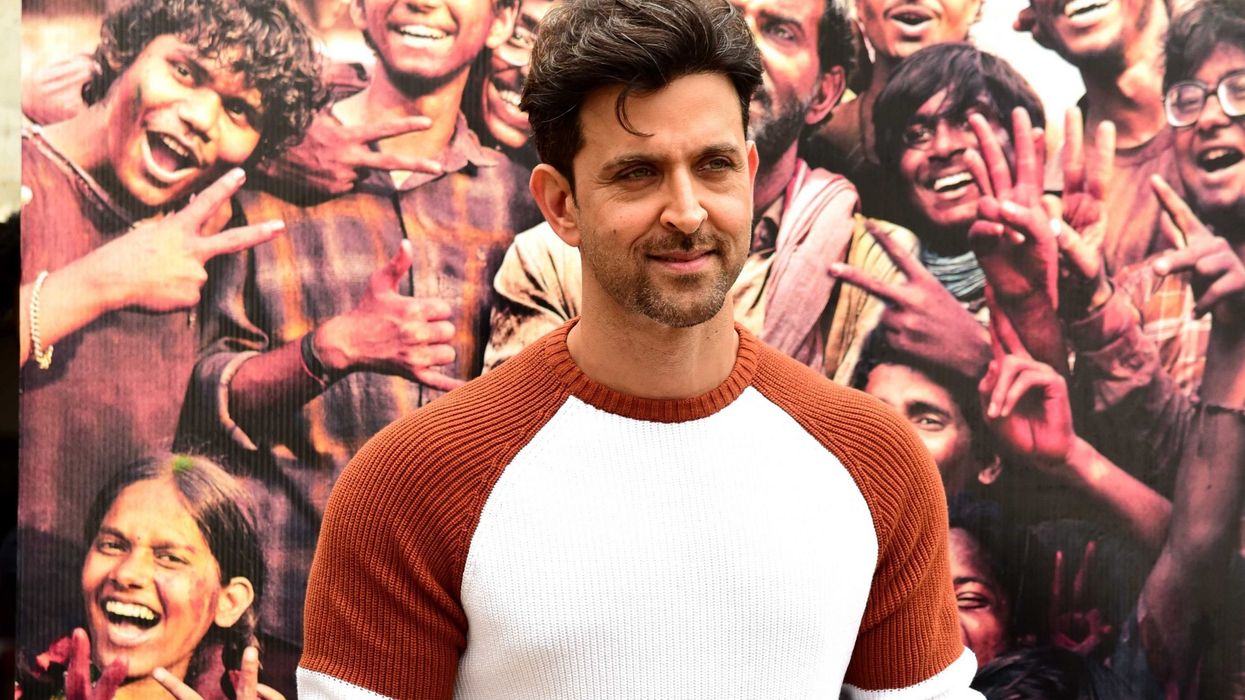Hrithik Roshan is a force to reckon with. The actor who exploded onto the silver screen with the all-time blockbuster Kaho Na Pyaar Hai in 2000 is known as one of the most good-looking men in the world. He is one of India’s finest actors with a charming personality that is difficult to look away from.
Each time Hrithik Roshan is on screen, all eyes are on him especially when he is doing a slow-motion walk on screen! The actor's slow-motion gait embodies sophistication and style. His confidence and commanding demeanour make it obvious that the actor's walk is simply unmatched. When WAR released, people ogled at Hrithik Roshan's entry into the film and how attractive his slow-mo walk was. Everyone who saw the movie wanted to replay the part over and over again! But that is not the only time Hrithik made the world stop and look at him walking in slow motion.
Let us take you through 5 times when our hearts skipped a beat, courtesy Hrithik Roshan!
1. Vikram Vedha
We were all eagerly awaiting the chance to see Hrithik Roshan in the role of a gangster, and Vikram Vedha (gave us that chance. Hrithik is known for playing a wide variety of characters. His appearance in this film was that of a very rowdy gangster, with long, untidy hair and a beard, but his slow-mo walk still made us go Wow!!!
2. WAR
In the movie War, all eyes were on the actor as he exited the aircraft and descended to the ground. The first step was taken, and time seemed to stop. The sound of his footsteps resonating on the pavement was all that could be heard. Each step he took was purposeful and assured, as though he were the only person in the world who existed. His slow-motion walk had everyone enthralled, waiting to see what he would do next.
3. Agneepath
In Agneepath, Hrithik Roshan displayed a range of emotions in the character of Vijju. By slowing down his movements, the actor was able to convey a heightened sense of intensity and depth in his performance. His walk allowed the audience to fully absorb and appreciate the subtle nuances of the character's body language and facial expressions, giving them a deeper understanding of the character's emotional state. It emphasized the importance of the moment being portrayed.
4. Bang Bang
In a classic sequence from the movie Bang Bang, Hrithik Roshan's Rajveer Nanda is also seen moving slowly. The camera records his confident and fluid walk as he passes by in slow motion. In contrast to the frantic surroundings around him, his calm motions and carefree manner give off a feeling of cool detachment. The slow-motion style further highlights the specifics of his attractive features
5. Dhoom 2
In Dhoom 2, Hrithik Roshan's character, Aryan Singh can be seen doing a memorable slow-motion walk while transforming his appearance with each stride. Although this movie contains numerous scenes of him walking in slow motion, this one scene stands out. It gives the character an iconic quality and creates an enduring impression on the audience.
On the work front, Hrithik Roshan will next be seen in Siddharth Anand’s Fighter, co-starring Deepika Padukone and Anil Kapoor.




